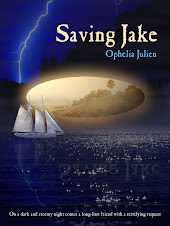My college edition of
the American Heritage Dictionary defines superstition as “A belief that some
action or circumstance not logically related to a course of events influences
its outcome.”
I’ll buy that.
In this season of
Halloween, with its ghosts and goblins and black cats, I got to thinking about
superstitions. There are tons of them, as we all know. The clichés involve the
black cat crossing your path, not walking under a ladder, not opening an
umbrella while inside, getting seven years of bad luck after breaking a mirror,
and throwing salt over your shoulder. I’m sure there are tons more than that,
but those are the ones I think of immediately when thinking about superstition.
Some of those are
undoubtedly related to being practical. It’s not necessarily a great idea to
open an umbrella while inside, especially if, like Jim, you like golf
umbrellas, and you’re in small space filled with breakable objects. Walking
under a ladder seems like a spectacularly bad idea if there’s a person at the
top of said ladder with a full bucket of paint, a sharp tool, or a pane of
glass.
But then there are
the superstitions we all develop. Don’t we? For years, there was a particular
song that, if it played on my radio, I felt obliged to listen to the whole
thing even though I CANNOT stand that song. I don’t know why that idea got
stuck in my head, but if I went to switch it off, I felt as if something bad
would happen. That must be superstition exemplified and I have no idea how I
got there. I have since talked myself out of it and happily switch stations if
that dang song comes on, but it took me a while to get there. Funnily enough, I
worked for a few years with a woman who had the same feeling about her own
particular song. She told me that if she didn’t listen to it, something bad
happened to a loved one. YIKES. Neither of us ever told the other which song
was apparently ruling our lives, as naming it would add to the jinx.
As weird as that may
sound, I know I’m not alone in that kind of thinking. I know sports
superstitions are rampant, among both the players and the fans. Michael Jordan,
for instance, insisted on wearing his North Carolina shorts under his Bulls
uniform. Serena Williams has to bounce the tennis ball a certain amount of
times before her first serve. The NHL actually has a “play-off beard”
tradition, where the team members grow their beards until they get eliminated
(or win). There’s also something called The Sports Illustrated Curse, wherein
teams and players worry that being on the cover will destroy their chances at
winning the season. And then there are the fans with their flags, their cheers,
their face paint, their lucky shirts, and their chants. I suppose all of this,
especially for the athletes, is somewhere between a placebo effect and
self-fulfilling prophecy.
But what about
superstitions in general? Why did mankind –and why do some of us individually—come
up with these rituals and routines in hopes of influencing outcomes in our
lives? I think that the human mind spends a lot of time looking for patterns,
even if we don’t realize that we are. It’s like pareidolia, the facility we
have that allows us to see shapes in clouds, or faces in a dirty window. We
look at a raw stimulus, as it were, and our brain finds a way to make sense of
it. I suppose if someone had something very bad happen to him after a black cat
crossed his path, he might make that connection.
On the other hand, I
can’t help wondering about those things that were taken as general belief , each for its own culture, and all cultures seem to have superstitions, just like
they all have ghosts and monsters of some sort.
Have you got any
yourself?





No comments:
Post a Comment